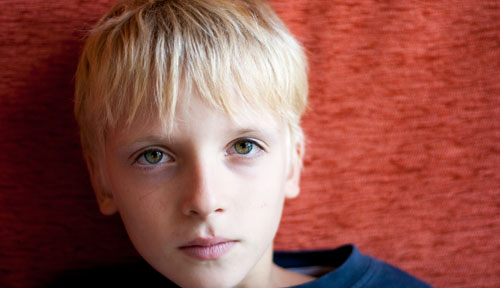We asked Howard Liu, M.D., assistant professor of psychiatry, for his advice on speaking to children about the recent tragic Newtown, Conn., school shootings.
On taking the initiative to broach the subject with kids:
“One of the mottoes for my training program was, ‘Never worry alone.’ A lot of times the adults are afraid to ask because they’re afraid to plant the question. But usually it’s already on the kid’s mind, so I recommend that parents ask.
“The most important thing is just to have that space for a conversation. Usually I say, ‘What have you guys heard about what’s gone on in Connecticut? Do you have any questions about things? Are there things that you’re worried about here? Is there anything that we can do to help you out?’ ”
On young kids being deeply affected even by a far-away event:
“You might see that they go to the nurse’s office more often because they have a stomachache. They may not sleep well at night. They may wet the bed when they’ve been potty trained for a long time. So you might see this sort of unconscious signs they have a lot of stress.”
On healthy ways to work through it:
“If you are a primary care provider or teacher or a parent, you can just sit down for 20 minutes and have your child play with their toys and see what kind of scenes that they act out. Mr. Rogers said ‘play is the work of childhood,’ and when kids are traumatized, it will show up in their play.
“Adolescents and teenagers can do other things — they can certainly talk to their friends. Sometimes they want to talk to their counselors or their religious leaders.
“For many people who have suffered from a trauma, I think it’s helpful to journal, as it can be difficult to talk about things openly. But after you chronicle the story, it gets easier each time. And you lower your level of dread and fear.”
As a father, what he would say to his kids:
“What I can say is that this is terrible. It makes all of us very sad. And sometimes I don’t have the answer as to why it happened. But we do know that your school is safe. Your parents love you and your teachers care about you. If you have questions I will always answer them. And if I can’t answer them I know people who can.”
